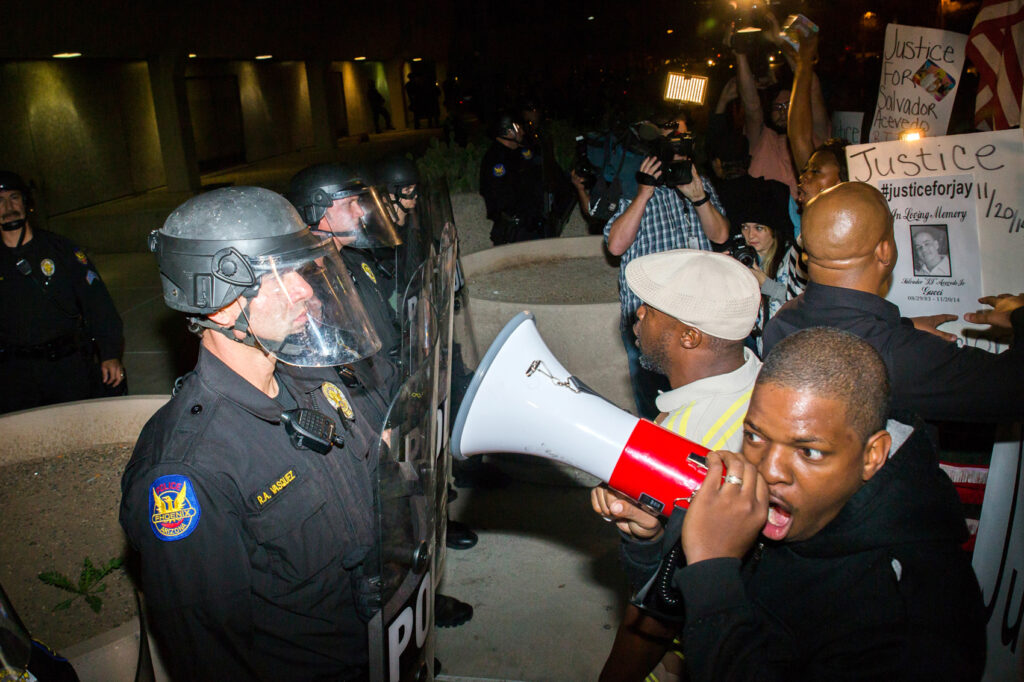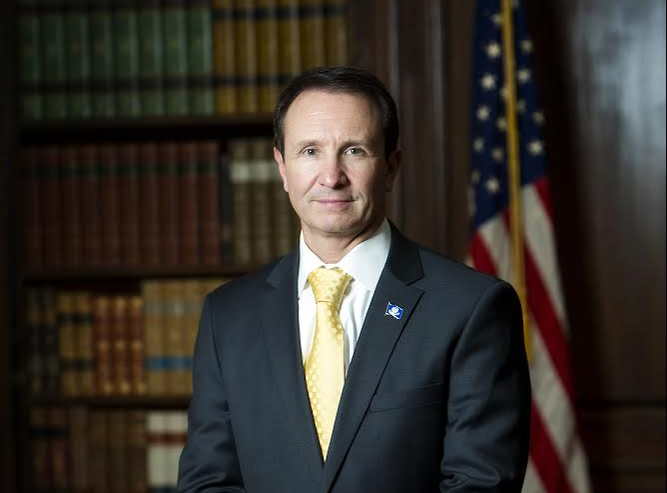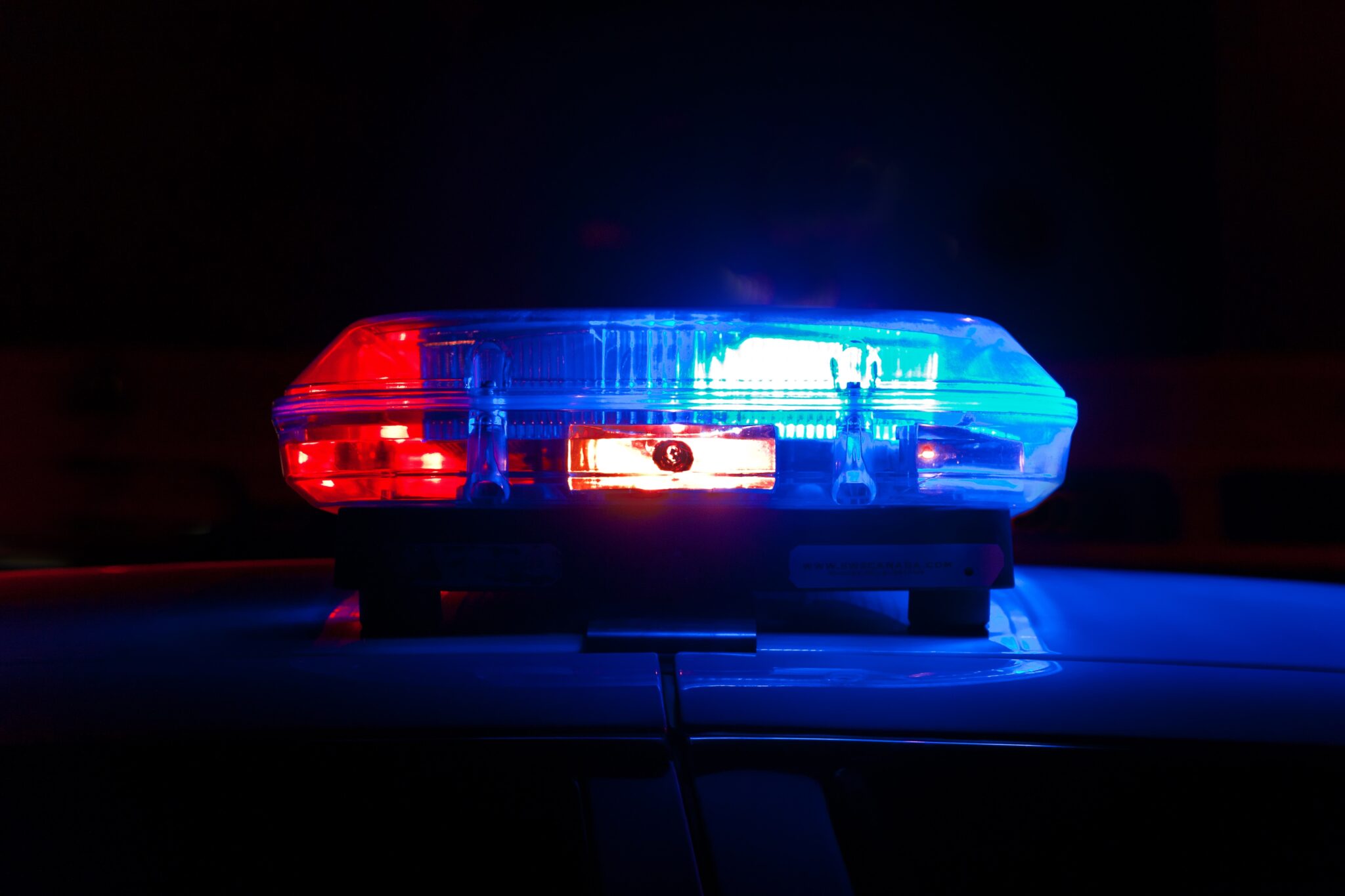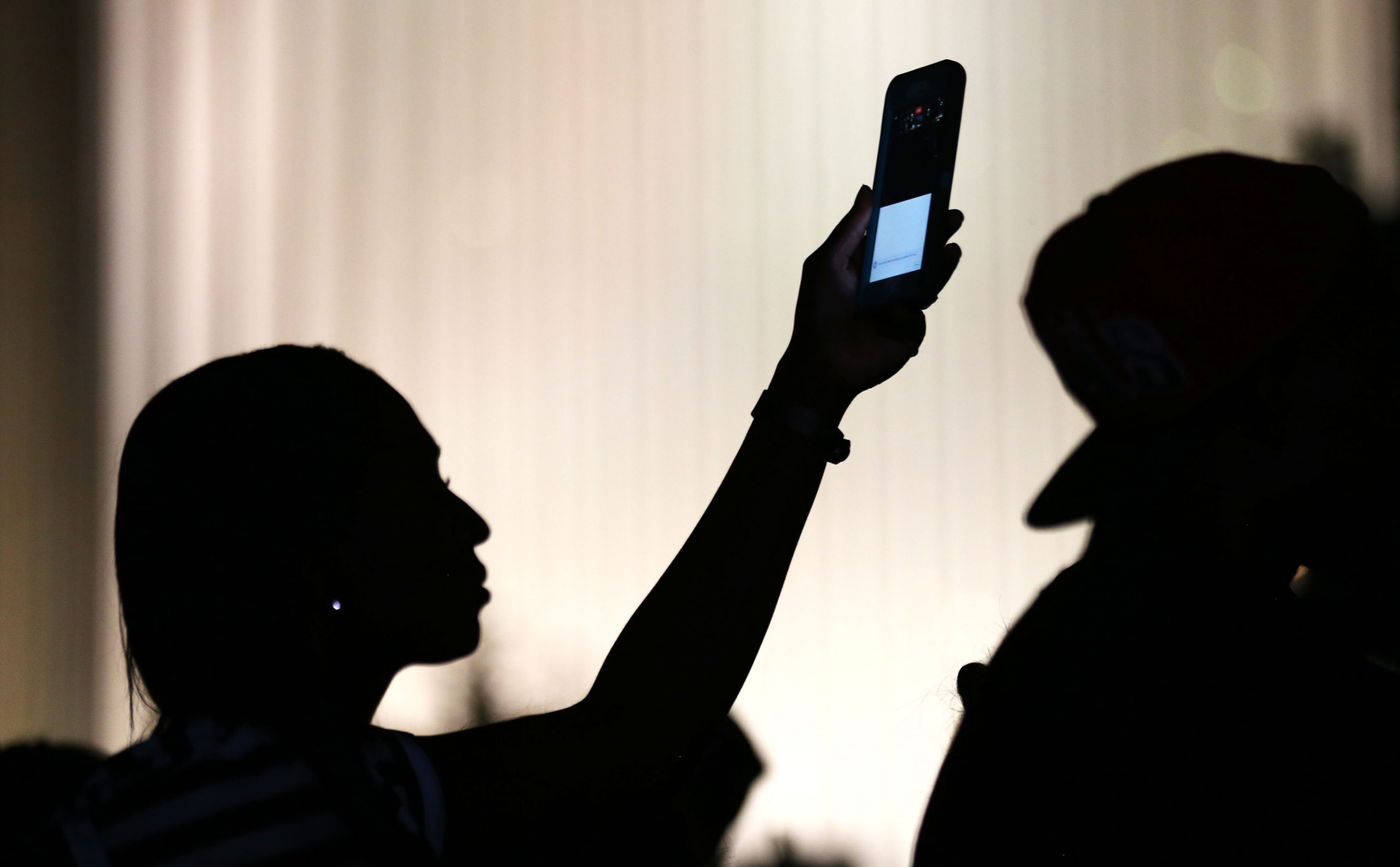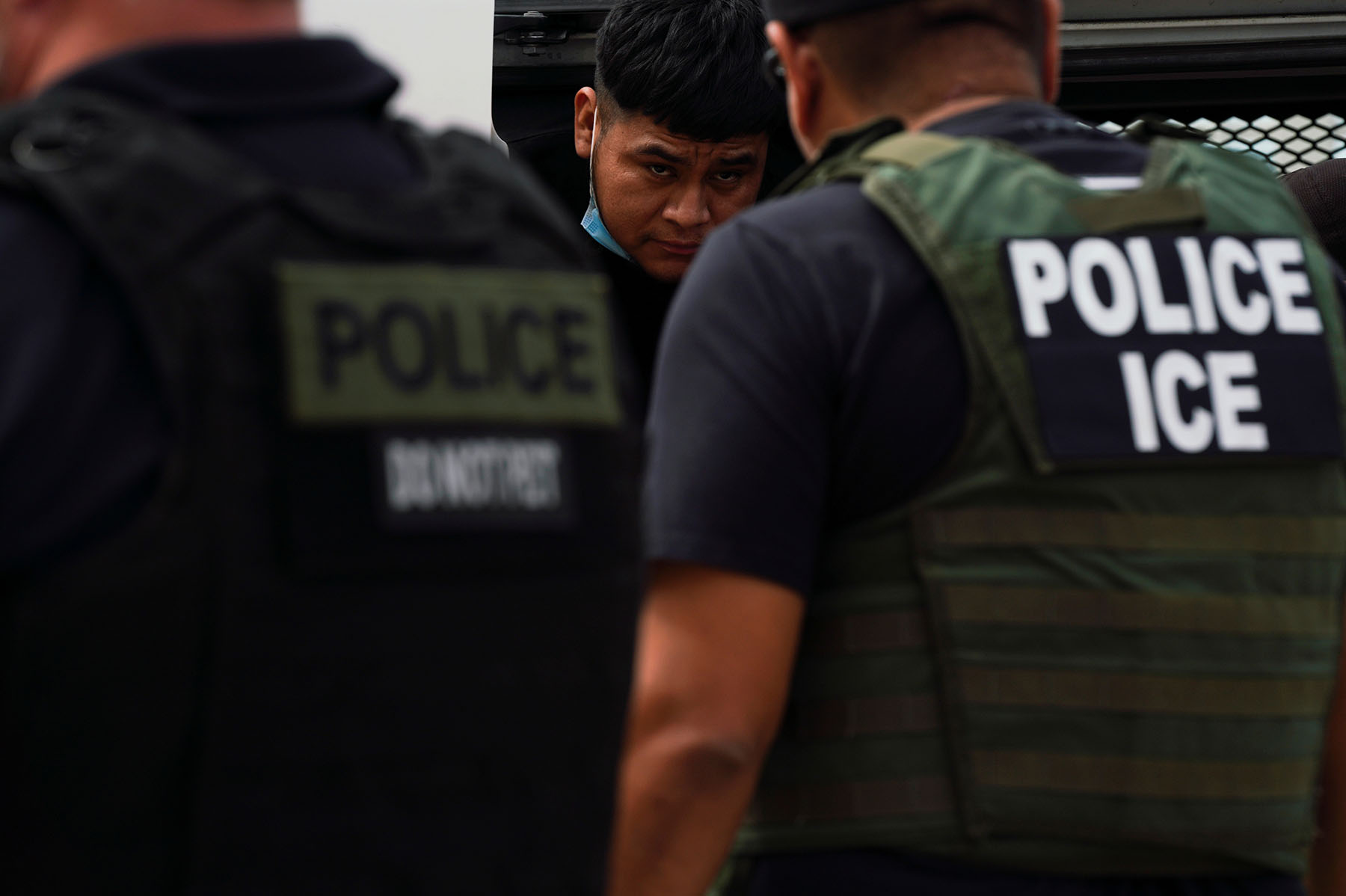Editor’s note: The story was updated July 27 to include comments from the bill’s sponsor, Rep. John Kavanagh.
The reaction was immediate and damning from free press groups and First Amendment legal scholars following the news that Arizona Gov. Doug Ducey signed a law restricting video recording of police officers in public. The law establishes that anyone recording video within eight feet from the scene of a law enforcement action in progress would have to move back if asked or face arrest and a fine.
There’s no hesitancy among free press and media legal scholars who are asked whether the law is constitutional. There’s consensus: It’s not. They base their views on numerous rulings of federal appeals courts on the issue.
While the U.S. Supreme Court has not yet weighed in on the right to record police, the U.S. Court of Appeals in the First, Third, Fifth, Seventh, Ninth, and Eleventh have all ruled that the right to record police in public places is protected by the First Amendment. On July 11, in the case of Irizarry v. Yehia, the U.S. Court of Appeals for the 10th Circuit, based in Denver, became the seventh federal court in affirming there’s a First Amendment right to film the police performing their duties in public.
The National Press Photographers Association, (NPPA); Reporters Committee for Freedom of the Press, (RCFP) and the Arizona Broadcasters Association, among others, started lobbying against this bill when it was introduced in early 2022. Gov. Ducey signed it into law July 6 and it goes into effect September 24.
Expect the coalition of press groups to challenge the law as a violation of the First Amendment “in the very near future” before it goes into effect, says Chris Kline, president and CEO of the Arizona Broadcasters Association. “This new law wasn’t asked for by local police departments nor is it a law that ensures public access and accountability…..This statute simply goes too far.”
See our teacher guide on the right to record police or the more concise citizen’s guide to recording the police.
Dan Barr, a media and First Amendment attorney who represents the Arizona Daily Star and the First Amendment Coalition of Arizona calls the legislation “a pointless law. It causes mischief to allow police to threaten prosecution of protected activity,” he says.
“Arizona already has a law. It’s been on the books forever. If you’re a third party interfering with the police, there’s already a law that deals with that,” Barr says.
The bill was sponsored by Republican state Rep. John Kavanagh, a former police officer with the Port Authority of New York and New Jersey, who contends that the measure is necessary to protect the public’s and officers’ safety. An earlier bill he sponsored that referenced a 15-foot barrier was dropped, he says, but in consultation a second-time around with Arizona legislative staff attorneys who advised him, his eight-foot bill passed.
Kavanagh said the bill wasn’t written to target the work done by journalists as “professional journalists don’t walk up within a couple of feet of a cop who’s frisking somebody. It’s not done. But they don’t want to be told what to do. I understand that.” However, the need is real, he says, due to organized groups throughout the country that follow police officers or respond to radio calls. “They walk up within a foot or two of the cop who’s involved in the encounter and the cops were complaining…And then in February or March, several months before the session, I got a phone call from a cop in Tucson and he said, ‘You’ve got to help us….They get to the scene, they stand one foot behind us filming and we don’t even know who the hell they are.'”
However, Mickey Osterreicher, the NPPA’s legal counsel, pushes back on the safety argument, saying it “….appears to be a pretext, as it does not set a distance of eight feet around an officer for everyone, but rather it sets the distance only for those who are recording police officers which runs contrary to the First Amendment standard of review…”
Grayson Clary, a legal fellow with the Reporters Committee for Freedom of the Press points out that Arizona is part of the 9th Circuit, which has previously settled any issue about bystanders’ rights in recording police in public. That’s why he says this law is all the more worrisome and in a February post wrote the Arizona legislation is part of “broader, troubling trend.” As examples he described Oklahoma’s anti-doxxing law enacted last year to shield the personal information of law enforcement and county officials as well as Florida’s so-called “anti-riot” bill.
“I think lawmakers probably know, and unfortunately are probably right, that a law like this can cause a lot of mischief on the ground before it’s actually struck down by a federal court. I imagine it’s already having a chilling effect on how videographers interact with police because as confident as everyone may be that the law is not constitutional that doesn’t mean that any particular journalist wants to draw an obstruction charge and be the test case,” Clary says.
Kavanagh, tweeted that “This law could be a model for all states.”
However, Stephanie Krent, a Knight First Amendment Institute staff attorney, says Arizona’s law has the potential to shield the police from public accountability. She notes that recordings have been “vital to social movements calling for reform and for a recognition of the dignity of the lives lost to police brutality.”
Stephen D. Solomon, who teaches First Amendment law at the Arthur L. Carter Journalism Institute and is founding editor of First Amendment Watch, adds that journalists and bystanders have an established right to record police officers in public unless they are interfering with police activities. “Any limitations on this right must be narrowly drawn, and a blanket ban on recording at eight feet violates this requirement by criminalizing even recording that does not interfere with the officers,” Solomon said. He adds that the eight-foot ban would also violate the First Amendment rights of many people at demonstrations who come within eight feet of police officers during a rapidly changing situation in the street.
Editor’s note: This version of the story updates the list of media and press freedom groups involved in lobbying against the bill when it was introduced in early 2022. The Knight First Amendment Institute was not among them.
NPPA Opposition Letter Teacher Guide: Right to Record Police
Tags
